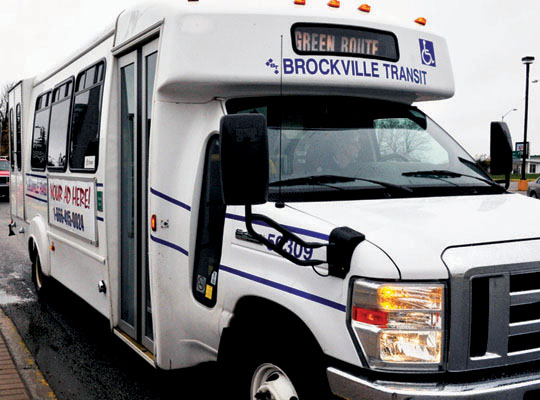
(Photo by Darcy Cheek)
I'm a big fan of outside-the-box statements – even the ones that go nowhere.
For starters, they generate debate, which fans the flames of democracy and gets my journalistic adrenaline going.
And when done properly – not merely for provocation – they achieve their stated purpose of injecting fresh ideas into a stale debate.
Such is the case with one of city council's reliable generators of outside-the-box statements, Councillor Jeff Earle, and his latest suggestion the problem of evening transit can be solved with an Uber-like model.
To be sure, not all of Earle's outside-the-box statements lead to fresh ideas. Earlier at Tuesday's finance, administration and operations committee, he drew puzzled looks – and even outright laughter from Councillor Jason Baker – by seemingly suggesting there is a correlation between Brockville's higher gas prices and its levels of federal gas tax subsidy.
When it came to the latest debate about making evening transit permanent, Earle elicited the same kind of furrowed-brow reaction, but in this case his point had at least some merit.
He began, promisingly, with a quote usually attributed (perhaps incorrectly) to Albert Einstein: “The definition of insanity is doing the same thing over and over again and expecting different results.”
The city, meant Earle, has repeatedly offered evening public transit, and repeatedly come up with disappointing numbers, yet it is now talking about making that service permanent.
It's clear the model is not working, Earle argues. So why not look for a better model?
“I think the model is out there and the model is Uber,” said Earle, who recounted a positive experience with the service in Toronto.
Councillor and committee chairman Jane Fullarton patiently told Earle, twice, that the smartphone-app-based cab service is not available in Brockville.
“I’m saying instead of fighting Uber we should encourage it,” he said.
There is, of course, no Uber to fight in Brockville, but Earle was bringing up the controversial company to make a broader point.
“The private sector can do stuff,” he said. “You don’t have to put everything in the public sector.”
This is the new idea injected into the debate: A possible role for the private sector.
It is not, of course, a new idea in civic politics, but it definitely is a newcomer in the narrower field of Brockville's transit debate.
And while this new idea's next stop might be Nowhere, it is incumbent on the city at least to find out if it's not. The private sector should be part of any discussion about extending transit availability, since it's become clear the public option cannot be chosen without increased spending.
I suspect that any private-sector transit model will involve not only evening service, but the entirety of Brockville's transit operations. The city would then have to step out of the way and let a private company do it, rather than competing with it, so we would be talking about replacing our city bus drivers.
And that, I suspect, is where the argument would stop.
But I am not an economist, nor am I an expert in the field of municipal transit.
It could well be that some kind of blended model exists, where the private sector can make a go of providing transportation to people who are not served by the regular buses.
Heck, if we're opening up the debate to include Uber, it's not even necessary for this solution to involve buses.
All of which may be a long shot, but we won't know unless we ask the questions.